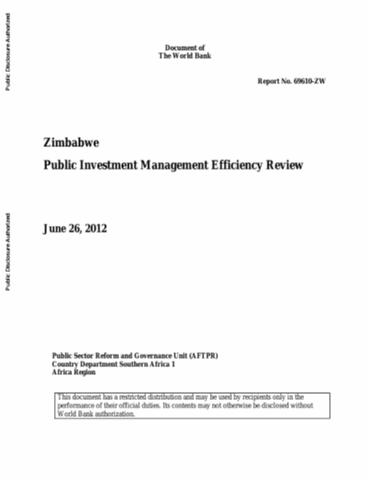Political Risk : The Missing Link in Understanding Investment Climate Reform?
Political risk has once again become a
key concern of investors after the perceived openness and
liberalization of foreign direct investment (FDI) regimes in
the 1990s. Governments that do not recognize this trend pay
a high price in lost investments. Confronting political and
regulatory risks as part of the investment climate is thus
crucial for countries to make their business environments
more competitive. This note suggests reforms that can have



